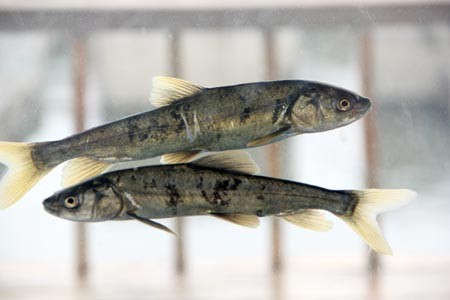Already facing threat from illegal poaching and construction of man-made dams, the endangered Qinghai lake naked carp faces new perils in the form of water contaminated by agricultural irrigation systems. In a report published by Sina, a large number of naked carp was found dead recently in the fish farms located near Qinghai Lake in the Tibetan Plateau.
The Qinghai Lake naked carp was declared a second-class state-protected animal in 2004. Growing at a rate of only one kilogram per 10 years, the naked carp plays a huge part in the lake's ecological chain; naked carp attracts water birds, which help prevent the eutrophication or excessive algal growth of the lake.
The naked carp thrives on Qinghai Lake's saline water.
Numerous efforts to protect the endangered fish species have already been implemented by the Chinese government, including laws that make poaching illegal in the remote province of Qinghai. There, a hefty fine and three years in prison are the consequences of illegally catching the fish.
Man-made dams have also contributed to the steady decline of naked carp population in the lake, as these block their annual migration upstream for the July spawning season.
The long-term protection and conservation of the fish has over 400 people involved.
Despite these efforts, agricultural irrigation systems and their effects on the Qinghai Lake have long been overlooked, eventually becoming a major threat to the existence of these protected marine animals.
According to Sina, water leaked from the irrigation canals built upstream and traveled downstream, contaminating the water and killing a large number of naked carp that have migrated in the area to spawn.



























